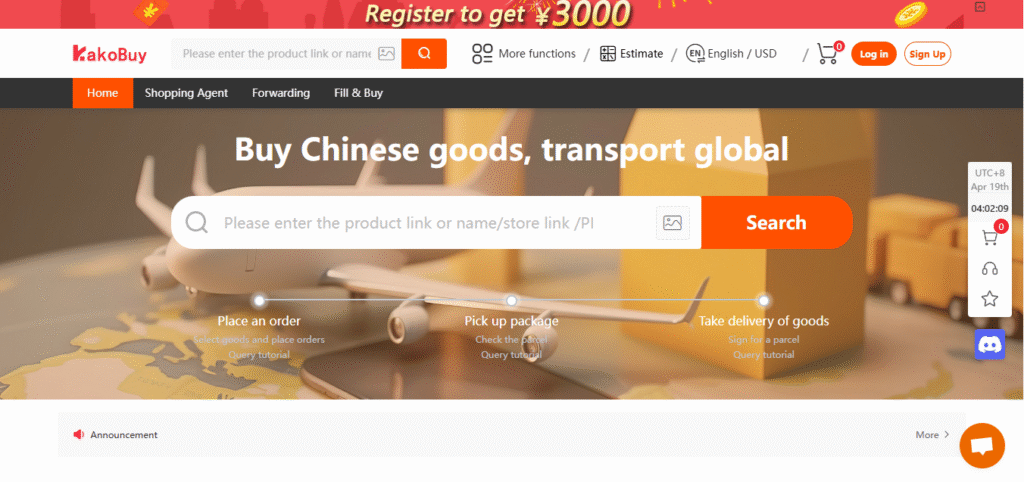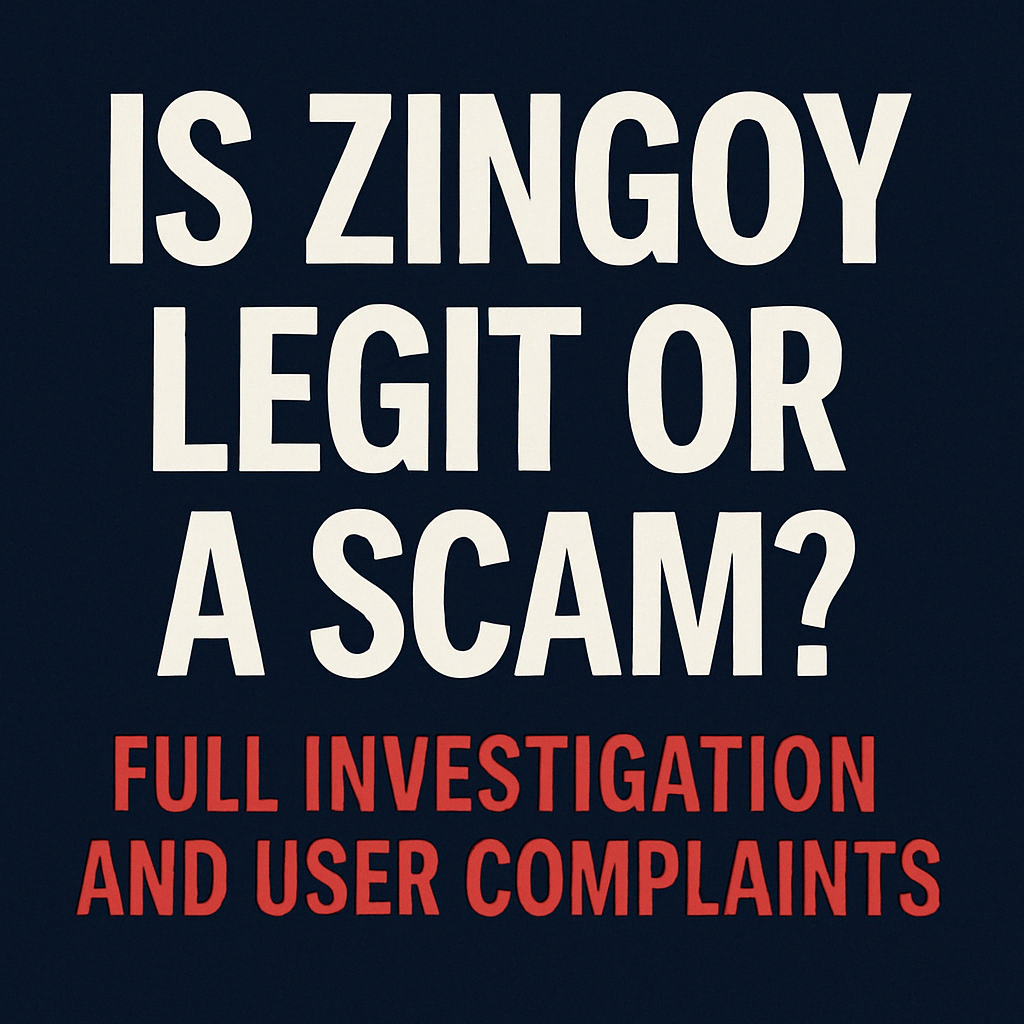No, Kakobuy is not a legit platform and displays several scam indicators, including a hidden ownership structure, fake mobile app links, and poor customer reviews.
In this article, we’ll cover every red flag associated with Kakobuy, analyze its business model, and help you understand why it’s unsafe to use.
What is Kakobuy?
Kakobuy claims to be a cross-border e-commerce platform that allows international users to purchase goods from Chinese websites like Taobao, JD.com, and 1688.
It markets itself as a one-stop service provider offering product purchasing, quality inspection, freight forwarding, and after-sales services.
The platform is positioned as an agent that simplifies shopping from Chinese stores by consolidating orders, checking product quality, and handling international shipping.
While this model may seem useful, the execution by Kakobuy raises major concerns about its authenticity and trustworthiness.

Foundational Red Flags That Expose Kakobuy as a Scam
From its newly registered domain to fake partnerships and broken links, Kakobuy’s entire foundation raises serious doubts. This section explores the core red flags that expose why the platform cannot be trusted.
Domain Registration and Website History
The official website kakobuy.com was registered on September 12, 2024, which means it’s still very new. Scam websites often operate under newly registered domains to avoid long-term detection.
The lack of any long-standing web presence is a serious red flag. Additionally, the site has already attracted negative attention within just a few months of operation.
Lack of Transparency in Ownership
Kakobuy claims to be operated by a company named Everyday Go Co., Limited, registered in Hong Kong, and also provides a UK address.
However, there is no verifiable evidence or public documentation confirming the legitimacy of this company. Even the domain registration uses privacy protection to hide the owner’s identity.
This lack of transparency is a classic sign of fraudulent intent. Legitimate companies usually share corporate details openly, including founders, team members, and business registration numbers that are traceable.
Poor Website Design and Functionality
The website suffers from several functional issues. Many internal pages have broken links, empty placeholders, or lead to error messages.
The Google Play Store and Apple App Store buttons on the footer do not redirect to any functional app pages, which means the mobile application it claims to have is either fake or non-existent.
Professional websites never display fake store links, and doing so severely damages the platform’s credibility. Moreover, the UI/UX is outdated, and the site layout looks more like a prototype than a full-scale commercial platform.
No Social Media Presence
In 2025, any legitimate brand—especially one claiming international operations—maintains active social media profiles for customer support, marketing, and brand presence.
Kakobuy, however, has no official social media accounts. Not even a simple link to Facebook, Instagram, LinkedIn, or X (Twitter).
This is not just an oversight. It’s a deliberate omission that often indicates an intention to avoid scrutiny and public accountability.
Misleading Information and Claims
On its “About Us” page, Kakobuy claims it works with companies like UPS, PayPal, and Taobao. However, there is no proof or verifiable third-party confirmation of these claims.
Using the names of reputable companies to build false trust is a deceptive tactic often used by scam websites.
Additionally, the website features vague and spammy marketing language in several sections, using buzzwords instead of real data, case studies, or customer testimonials.
False Promises about Services
Kakobuy heavily advertises services like quality inspection, order tracking, and warehouse storage. However, real user experiences do not align with these promises.
Multiple customers have reported that their packages were never shipped or were held indefinitely without updates.
The platform’s supposed benefits, such as order photos, warehouse consolidation, and multi-currency payments, fail to deliver on their promises. Users often report delays, lack of responsiveness, and hidden fees.
User Complaints and Negative Reviews
Despite being new, Kakobuy has already accumulated negative reviews on Trustpilot, Scamadviser, and other watchdog sites. Some of the most common complaints include:
- Delayed Deliveries: Users report that packages remain in the warehouse for weeks or months.
- Double Charging: Some customers are asked to pay shipping fees twice, with no refunds or explanations.
- Poor Support: Emails and customer support tickets are either ignored or answered with generic responses.
These complaints show a pattern of mismanagement and intentional deceit, which are serious indicators of a scam.
Scam Analysis by Watchdog Sites
Kakobuy receives low trust scores on several scam-checking platforms:
- Scam Detector: 22.5/100 — flagged for potential phishing and data security risks.
- Scamadviser: 33/100 — raises alerts for new domain, low traffic, and anonymous ownership.
- Scamdoc: Also flags the site as untrustworthy due to hidden identity and lack of company verification.
These tools use AI and public data to assess the trustworthiness of websites, and all of them point to high risk for Kakobuy.
Misleading Affiliate Promotions
Kakobuy appears to be promoted by affiliate marketers and YouTubers who either don’t understand the risk or are paid to promote it.
Some even compare Kakobuy to other platforms like Pandabuy and Sugargoo, despite the stark difference in service quality and legitimacy.
These promotions are usually scripted and fail to disclose any real experiences, which can mislead first-time users into trusting the platform.
Fake Incentives and Gift Offers
New users are lured in with fake giveaways like “$105 super gift parcel” and “free storage for 100 days.” These incentives are meant to draw quick signups but offer no real value.
Once a user is locked in, they’re hit with unexpected charges and service delays.
This bait-and-switch tactic is common among scam e-commerce sites.
Fake Customer Engagement Tools
The website claims to offer live chat support and Discord support channels. However, real users have shared that the live chat feature is non-functional or extremely delayed.
Even the Discord channel seems unmoderated, filled with unaddressed complaints, or completely inactive.
If a company provides support tools that don’t work, it suggests they never intended to offer real help in the first place.
Risk of Personal and Financial Data Theft
Because of the weak backend and lack of security certifications (SSL details, payment verification badges, etc.), users also run the risk of having their personal and financial data exposed.
Scam sites like Kakobuy are often used as phishing traps to steal credit card numbers, personal identification details, and other sensitive data.
Final Verdict: Avoid Kakobuy
From fake partnerships and new domain registration to poor customer service and misleading incentives, Kakobuy is filled with scam indicators.
Users are strongly advised to avoid this platform and look for alternatives with transparent policies, verified ownership, and real user feedback.
Frequently Asked Questions
Is Kakobuy a real company?
Kakobuy claims to be operated by a registered company, but there’s no verifiable proof of its legitimacy, and its ownership remains anonymous.
How old is the Kakobuy website?
The domain was registered in September 2024, making it a very new and unproven platform.
Is it safe to make a payment on Kakobuy?
No, there are risks of fraud and data theft. The platform lacks standard payment security certifications.
Does Kakobuy offer refunds?
There’s no clear or enforceable refund policy, and many users report being denied refunds after failed transactions.
Is there any customer service at Kakobuy?
While they claim to have live chat and email support, real users say these are either unresponsive or unhelpful.

